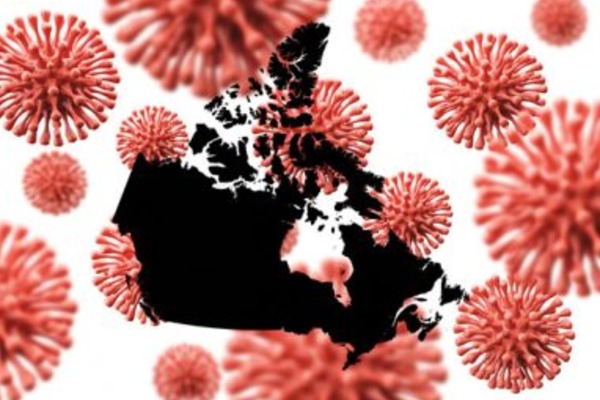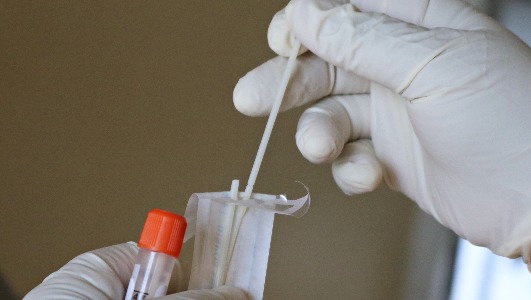Lessons Learned

The Canadian Travel and Tourism Roundtable (CTTR) welcomed the release of Evaluating Canada’s Pandemic Border and Travel Policies: Lessons Learned, which was authored by four Canadian doctors specializing in infectious diseases, emergency medicine, and pandemic management, who assessed the impact and effectiveness of border measures and other travel restrictions introduced by the Canadian government to manage COVID-19.
Through a study of existing literature and best practices from other countries, the new report concludes that:
- Border measures have been largely ineffective at stopping Variants of Concern from entering and spreading across Canada and are unlikely to be effective in the future. At best, travel restrictions are estimated to delay the impact of a variant of concern by a few days
- There is no convincing evidence that pre-departure and on-arrival testing and surveillance have had a significant impact on local transmission in Canadian communities
- Travel-related testing is ineffective in identifying COVID-19 cases and preventing the spread of the virus and should no longer be imposed. Other alternative measures, such as community wastewater testing, are more accessible surveillance mechanisms to identify variants without inconveniencing travellers and requiring significant government and industry resources
- The masking obligation is inconsistent from a public policy perspective. Air travel is among the safest modes of travel in terms of risk of transmission with high air exchange rates. As such, it raises the question of the benefit of mask mandates targeting the travel sector, especially when they aren’t being applied in society and by other countries.
Though there have been some public signals that the federal government will be lifting some remaining COVID-19 health measures before the end of the month, the Report should be leveraged for future pandemic planning purposes as science-based decision making is paramount to the successful management of infectious diseases.
Dr. Zain Chagla, Infectious Diseases Physician and Associate Professor at McMaster University, said that: “We have learned a lot since March 2020. It is no longer scientifically necessary or appropriate to use travel-related pandemic management tools almost three years after the start of COVID-19. Enough time has passed for us to make a scientific assessment as to whether the travel restrictions introduced by the federal government were successful in containing the spread of the virus and its variants.”
Dr. Chagla continued: “By appraising the literature and comparing Canada’s response to best practices in other countries, we were able to conclude that the restrictions introduced during the Omicron wave were largely ineffective and should not be maintained or reintroduced.”

Dr. Dominik Mertz, Associate Professor, Division Director Infectious Diseases at McMaster University, pointed out that: “The continued imposition of travel measures at Canada’s border is costly, illogical, and inconsistent at this point.”
Dr. Mertz said that: “While Canadians are free to attend concerts, sports games, and many other daily activities, the travel industry continued to be singled out without any scientific basis. In retrospect, these measures could have been stopped along with similar changes in policy in the community across Canada.”
Dr. Karl Weiss, Chief, Division of Infectious Diseases at the Jewish General Hospital and Professor of Medicine at McGill University, explained that: “Pre-departure and on-arrival testing has not had the desired impact because it did not distinguish between an infectious traveller and a non-infectious traveller who may still be testing positive as a result of a previous infection.”
Dr. Weiss said that: “The federal government must not reintroduce any past measures and should remove remaining restrictions as they will have a very limited impact on Canadian society at this stage.”

Dr. David Carr, Associate Professor, Division of Emergency Medicine at the University of Toronto and Emergency Physician at the University Health Network, made it clear that: “There is a clear discrepancy in the measures that have been applied to international travel and tourism, especially when compared to the measures applied to other modes of transportation, such as public transportation, and to public health measures in the community in general.”
And Dr. Carr added that: “Based on current data and evidence, it is time for a complete overhaul of the Canadian government’s approach to the testing and surveillance of air travel passengers. Canada must start aligning its policies with those of peer countries.”
Perrin Beatty, President & CEO of the Canadian Chamber of Commerce and Co-Chair of the Report, pointed out that: “Last week, the World Health Organization announced that deaths from COVID-19 are at the lowest they have been since March 2020. With this news, it’s even more clear that what made sense at the beginning of the pandemic no longer makes sense today. Canada’s travel rules have been out of step with the international community and have not had the desired impact when it comes to preventing the spread of Variants of Concern within our borders.”
Beatty emphasized that: “The report released today confirms that Canada must adapt its response to the changing pandemic landscape. We hope the federal government will heed these respected physicians’ sound and urgent advice that unscientific border measures are not the answer.”

Beth Potter, the other Co-Chair of the Report and President & CEO of the Tourism Industry Association of Canada, said that: “We are deeply grateful to the authors of this report for their exemplary work. Canada has long been recognized for its openness, and our response to the threat of COVID-19 and other infectious diseases must be rooted in that value. We hope the report will provide Canadians with sound, science-based evidence of what we can learn from our collective handling of this pandemic and inform policy decisions going forward.”
ACTA president, Wendy Paradis observed that: “Today’s expert report by leading infectious disease and emergency medicine physicians reveals clear lessons: border measures, including pre-departure and on-arrival testing, are ineffective at detecting COVID-19 variants of concern or stopping and reducing their spread.”

Paradis continued: “Canada’s restrictive COVID-19 border measures have devastated travel and tourism businesses, with travel agencies and independent travel advisors being the hardest-hit of the hardest-hit sectors. In our industry alone, 41% of jobs were lost and nearly 1000 businesses closed.”
ACTA’s president pointed out that: “Since the depths of highly restrictive measures, we have started the long road to recovery, and we are relieved to hear reports that all remaining border measures will expire September 30. However, there remains deep fear that new and ineffective measures will be re-introduced during the fall and winter respiratory illness seasons.”
And Paradis concluded: “The Government of Canada must look at the clear evidence which shows the ineffectiveness of these measures. Now is the time to double down on economic recovery, and only through government-industry cooperation and science-based policy can we rebuild the world’s best travel and tourism economy.”
Tags:


